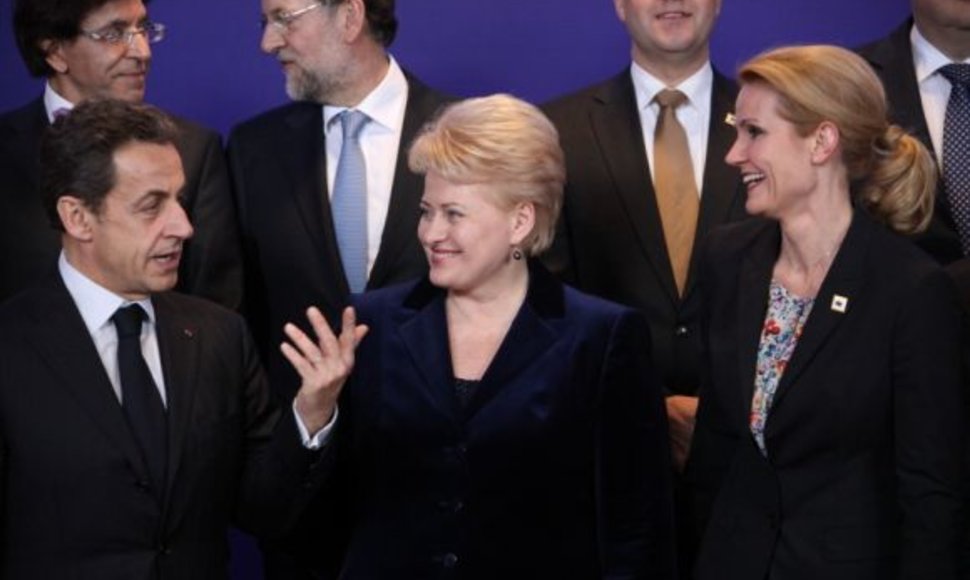The document is aimed at curbing debts of member-states, which has led to the current eurozone crisis. According to the treaty, annual structural budget deficit must not exceed 0.5 percent of the nominal gross domestic product (GDP), with the provision to be transferred to national legislation.
According to the President, fiscal discipline envisaged in laws will keep irresponsible politicians from overspending or irresponsible handling of country's finances.
"The Treaty's importance for Europe is strategic and long-term. Fiscal discipline becomes not merely a declaration, but a legal commitment of each contracting party. This is a serious message for international markets and a guarantee of economic stability," Grybauskaitė said in a press release.
“Lithuania is truly determined to abide by the underlying principles as it is already doing, as well as the entire Baltic and Scandinavian region. This is our philosophy and responsible approach of all Nordic-Baltic countries to their economies," the president said before signing the Treaty.
Great Britain and the Czech Republic have not yet joined the document.
The treaty also provides for informal meetings of heads-of-state of the euro zone twice a year, with leaders of countries that have not yet adopted the euro invited to the meetings at least once a year.
The document is scheduled to take effect on 1 January 2013, after ratification in the 12 countries of the euro zone. Countries outside the euro zone who signed the treaty will have to decide on whether they want to adopt some of the provisions prior to introducing euro. Their decision is expected at the time of ratification.
The new pact is aimed at ensuring that member states fulfill their budget deficit obligations. For this purpose, sanctions are also provided for in the treaty, which also gives more functions to the European Court of Justice.
Besides fiscal discipline provisions, the pact also stipulates closer economic cooperation.
Lithuania is likely to take on only part of obligations before its membership in the eurozone. The country is considering the possibility of refusing provisions that are related to the so-called partnership programs and prescribe new standards for countries subjected to budget excess procedures.
Lithuania's government also has doubts about the provisions on fines by the Court of Justice, as the money would go to the European stability mechanism, which exists only among eurozone members.
Furthermore, Vilnius questions the provisions of reinforced cooperation. Currently, spheres where cooperation is being stepped up includes competition, employment and social issues, fiscal discipline and stability of financial institutions. In Lithuania's view, Germany and some other states also want to include a fifth sphere of increased coordination in the field of taxation which might not be in the best interest of Lithuania.












